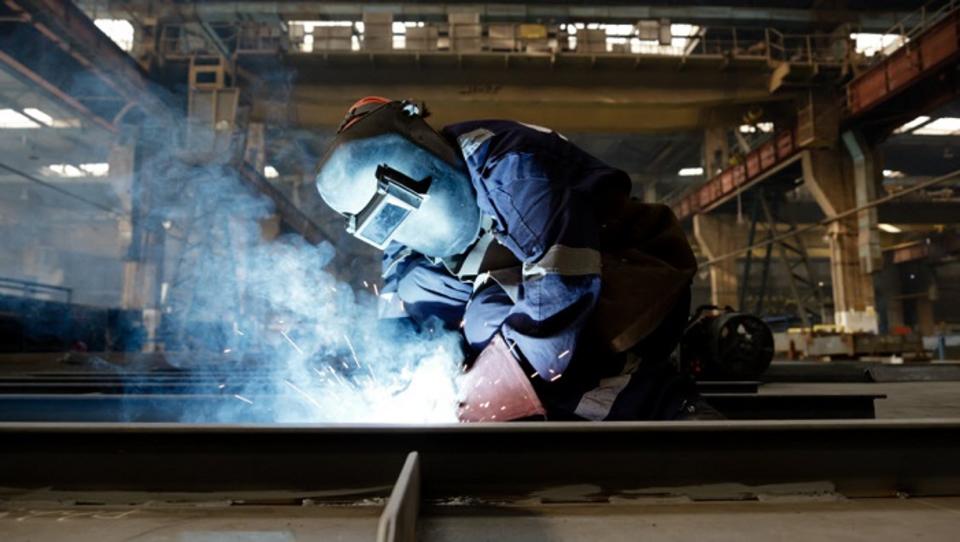How To Become A Welder - 4 Steps

To work as a welder, you need excellent hand-eye coordination, attention to detail, and finely honed technical skills. If you want to become a welder, finish up high school or earn your GED and then enter a training program to learn the right skills, methods, and safety measures. You’ll also want to consider certifications before you look for your first job as a welder. Check out the steps you could take to begin a rewarding welding career.
Find a Welding Trade School Near You
A high school diploma or GED is an important first step toward a welding career. The math and science you learn in high school helps you understand measurements, angles, and blueprints. You may have also been introduced to the kinds of chemical reactions that affect metals. With that foundation, you can explore welding schools.
Look for a welding program that teaches you up-to-date welding practices by credentialed instructors. Make sure the curriculum covers common welding techniques like MIG, TIG, SMAW, and FCAW welding, blueprint interpretation, and proper safety protocol. Visit the campus and explore their welding labs. The facility should feature a variety of welding stations and modern equipment, and you should see students practicing different welding processes. Ask if the welding classes include metal fabrication and whether students get to hone their craft on a variety of materials.
Earn Welding Certifications
Welding certifications highlight your expertise and demonstrate to potential employers that you’re dedicated to your craft. They can also separate you from other job candidates. Professional organizations like the American Welding Society (AWS) offer a variety of certifications based on your interests, including:
- Certified Welder
- Certified Welding Inspector
- Welding Educator
- Resistance Welding Technician
- Robotic Arc Welding
- Welding Sales Representative
Search for a Welding Job
As a welder, you have more job search tools than just a typical job board. While online sites like ZipRecruiter and Indeed are good tools to see who’s hiring in your area, you can also ask your welding instructors and classmates if they know anyone who’s hiring. Or look for an apprenticeship to get started. Apprenticeships are a great way to get into a job, earn a wage, and get more practice and training from veteran welders. You can also join trade associations and networking groups. National organizations like AWS and even local welding unions have resources and people who can help you find a welding job. And if you know companies that hire welders, go knock on their door. You never know until you ask if they’re ready to hire a highly motivated and newly trained welder for their team.
Consider Different Welding Careers
Many popular industries like automotive, manufacturing, and energy rely on skilled welders to keep operations running smoothly. As a professional welder, you can choose a specialty. Some may require additional certification, but if you have a passion, pursue it!
Here are a few industries that rely on qualified welders:
- Construction
- Maritime
- Automotive
- Military
- Energy
Do you Have Skills to Be a Welder?
Before you become a welder, you need to decide if you truly want to be a welder. Do you have what it takes? As a welder, you work with your hands and use specialized tools and equipment. The job can also be physically demanding. You’re on your feet a lot and need to wear protective gear to stay safe. Some of the skills you need as a welder include:
- Metal working
- Technology and tool use
- Precision and attention to detail
- Problem-solving and troubleshooting
- Time management and organization
Is Welding Worth It as a Career?
Welding can offer stable and interesting career options if you enjoy working with your hands and solving problems. Are you ready to begin your welding career? Lincoln Tech offers Welding Technology training that can prepare you for entry level work in the field. Fill out the form to learn more about this rewarding career path.
Take the next step
Complete this simple 3-step form to get started. Click "Next" to go to Step 2.
